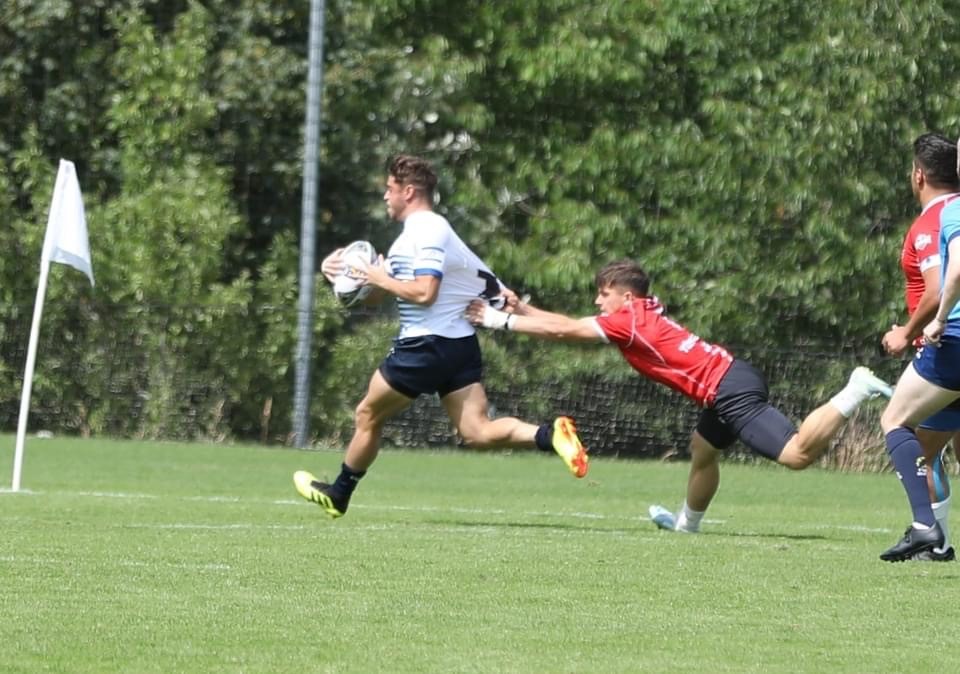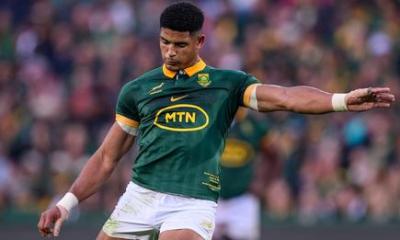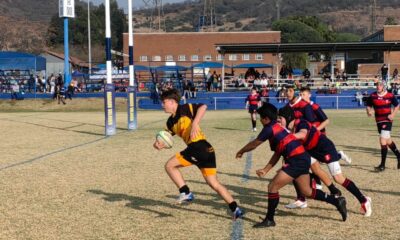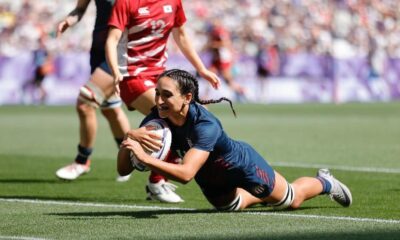
Sport

KDL matrics live Sevens dream in Switzerland
Four South African King David High School Linksfield (KDHSL) matric students lived their dream as they represented Israel at the Rugby Europe Under-18 Sevens Championship in Switzerland on 15 and 16 July.
Captain Dean Surmany, Daniel Froehlich, Aaron Moritz, and Ethan Edinburg played in all of Israel’s five matches in the National Sports Center, Macolin, at the championship, which is the highest level of European Sevens rugby for under 18s.
The four KDHSL students arrived in Israel a week before the competition to train at the Wingate Institute, meaning that the entire Israel squad trained together for just a week. “The training was different to all the other teams I’ve played for,” Surmany says, with Edinburg noting that they trained twice a day, “two to three hours in the morning and two to three hours in the evening”.
“Then we left for Switzerland to play in the championship,” Surmany says. “We weren’t really sure what to expect. Sevens is a very different game compared to the usual 15s rugby we’re used to, so we knew it was going to be a challenge playing against the top teams in Europe.”
He says his side “got a shock” in their first game of the championship. In their first match as a whole team, they lost 53-0 to Portugal.
That afternoon, Spain gave Israel a 56-0 spanking before the Holy Land ended the day with a promising 24-14 defeat against Ukraine.
“It was tough mentally on the team that our first two games were against two of the top teams in Europe,” Surmany says. “The Ukraine match was a much easier game, but still difficult. We did substantially better, and lost by our narrowest margin.”
Israel finished bottom of Pool C and would again play against Ukraine, but this time in the ranking semi-finals the following day.
A 26-12 win for Ukraine meant that Israel played against Turkey in the final for 11th place. “Turkey was also a very good team,” Surmany says. “We were starting to get our groove as a team, and we played a lot better. We lost by two points [19-21].”
“Representing Israel at the championship was an incredible experience,” Edinburg says. “From the moment I stepped onto the field wearing the Israeli colours, the sense of pride was unlike anything I had ever experienced before. Representing our homeland playing a sport I love, surrounded by teammates who shared the same dedication, created an unbreakable bond that extended beyond the lines of the rugby field.
“Before Kevin Musikanth, a director of rugby in Israel, went to Israel about five years ago, he was head of rugby at King David Linksfield. He coached me, and knows a little bit about me,” Surmany says, describing the KDHSL boys’ route to playing for Israel.
Musikanth contacted Surmany, saying, “We need some players for the championship.”
“How are South Africans eligible?” Surmany asked.
“In the under-18 category,” Musikanth said, “you don’t need to be a citizen of the country. Plus, because it’s Israel, you’re Jewish, and you’re proud of what Israel stands for, you’re allowed to play for Israel’s under 18s.”
With Surmany on board, Musikanth asked KDHSL’s rugby coach to pick three other players who would be good at Sevens rugby.
“Once we landed in Israel, we were welcomed by the players in the Israeli team,” Moritz says. “The only difficulty at first was that the coach stated that we would communicate only in English, which made it challenging for the Israelis as English isn’t their first language. But as we started to get to know them and spend more time with them, we were able to teach them South African phrases. From this journey, I created a brotherly connection I’ll never forget.”
Says Froehlich, “It was an unbelievable experience meeting players from all over the world.” Unlike the KDHSL players, their opponents were “full international players who were accustomed to the Sevens game. It was a huge learning curve. We got better as the tournament progressed.”
During the championship, Froehlich mainly played at centre, Edinburg as a hooker and prop, Moritz on the wing and at centre, and Surmany at flyhalf and scrumhalf.
“Going to Israel, I never expected to be the captain of the team,” the latter says. “Arriving as an outsider from Israel, I didn’t know who we were playing with. A lot of the Israelis weren’t fluent in English and didn’t understand everything I said as captain. I had a conversation with the coach and he told me that the team needed a person like me to lead and encourage them.
“I tried to translate what I could to Hebrew because I do Hebrew as a matric subject. I spoke Hebrew when I could, and asked one of the guys who could speak English and Hebrew to translate. The majority of the players in the team were from Israel. There were two guys from the Netherlands who were eligible to play.”
Surmany and Froehlich both say the experience is one they will never forget.
“It has taught me about commitment, sacrifice, and camaraderie,” Froehlich says.” If I could continue to be involved in a programme such as this, I wouldn’t think twice.
“The biggest lesson I learned is the incredible power of sport to break down barriers and unite people from diverse backgrounds,” Edinburg says. “It was eye-opening to witness how sport can transcend differences in culture, language, and belief, bringing individuals together with a shared passion. It showed me that sport is a language understood by all regardless of where you’re from. On the field, you all speak the same language with the same goal.”
“The lessons I learned were teamwork and collaboration,” Moritz says. “Sevens rugby is a fast-paced, high-intensity game that requires seamless teamwork and collaboration. Throughout the championship, I’ve learned the value of working together with teammates, understanding each other’s strengths and weaknesses, and supporting one another on and off the field. You realise that individual brilliance is essential, but it’s collective effort that leads to success.”










